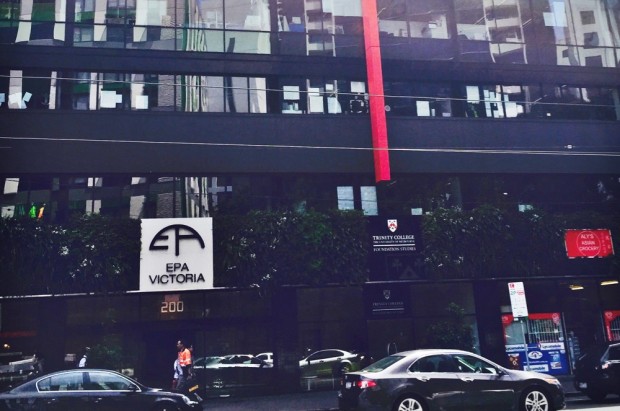EPA building owners to give international students the boot if they don’t recycle
STUDENTS at Trinity College Foundation Studies are learning real world lessons on recycling when owners of the Environment Protection Authority building picked up on the young tenants’ shabby handling of waste within the complex. Lydia Liu, Sherry Li and Shaun Xu report.
Owners of the Environment Protection Authority (EPA) building have warned Trinity College Foundation Studies and its students that they would not be able to use the building’s facilities if they don’t properly dispose of waste and recycle within the complex.
Formerly the Carlton United Brewery, the EPA worked with owner-developer Drapac in 2009 to save the building and transform it into the sustainable commercial building it is today.
The college moved into their new premises on 200 Victoria St just months ago, but students have been largely unaware of their new obligations.
A survey examining students’ recycling habits found 60 per cent of students had given little thought about recycling and how they disposed of their waste, prior to the warning.
This includes disposing of “organic waste”, “landfill waste” and materials for “recycling” separately.
So what can students do both inside and outside the classroom? Here are some tips:
Different types of waste
For starters, students ought to be able to identify and differentiate between different types of waste.
Organic Waste: This is considered to be anything that comes from an animal or plant – as long as it is biodegradable. Examples of organic waste include fruit you might carry around, vegetables or meats, bones, rice, cheese, egg shells or even waxed paper.
Recycled Waste: While paper is the main concern for recycled waste, other things that come under this category include plastics (i.e. takeaway boxes and plastic bottles), aluminium (i.e. drink cans) and glass (i.e bottles and jars).
Landfilled Waste: If what you’re holding onto doesn’t fit into either categories above, then it most likely will end up in the general landfill waste.
Recycling Paper
It’s surprising how something simple like paper can be re-used. Paper can comprise the following: magazines, newspapers, office paper, cardboard, phone directories etc.
Rather than scrunch up some old handouts from class and throw them out, why not hold onto them? They might have other uses in the future, for instance as scrap paper for note-taking or as a wrap for delicate items when you have to pack things. The same also applies to envelopes!
Paper waste can especially be reduced within your own household by placing a “no junk mail” sign on your letterbox, thus reducing unwanted deliveries. Additionally, consider reading news from your computer, phone or tablet device instead of collecting piles of newspapers.
Should you ever have to print something, print on both sides of the paper. And if possible, buy recycled paper instead!
Electrical Equipment
Most electrical equipment can be re-used or broken down into parts. If your electrical equipment is still in full working order, you can either sell it or donate it to a charity shop. Pawn shops like Cash Converters may even accept or take back old products for cash! Some councils also accept electrical equipment at their waste recycling centres.
Always try to repair items rather than throwing them away. Also keep in mind that others may find a use for the item when you no longer want it.
And finally, when buying any electrical item, take note of its lifespan. A longer lasting electrical item will certainly create a better environment for you.
This story was produced by media and communication students at Trinity College Foundation Studies as part of Meld’s community newsroom collab. Education institutions, student clubs/societies and community groups interested in being involved can get in touch us via meld@meldmagazine.com.au.


